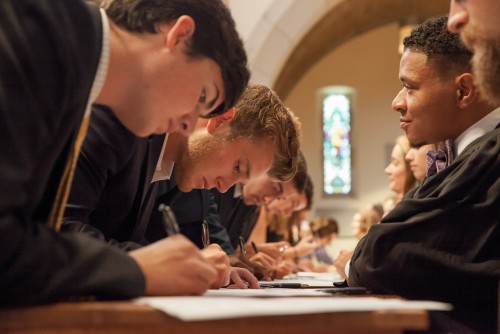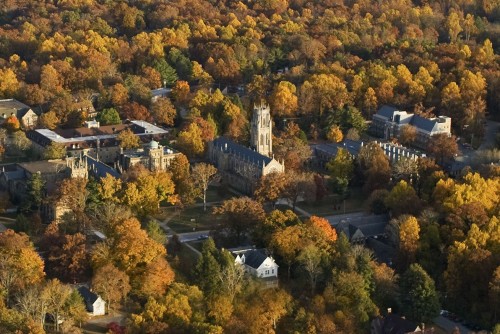It’s an education that will prepare you for life, with the critical thinking, creative synthesis, refined judgment, and leadership skills you’ll apply every day in your career.
How It Works
Sewanee's curriculum is divided into three components:
- general education courses, which establish fundamental competencies and knowledge;
- the major, usually declared at the end of the sophomore year and constituting about a third of each student’s course load; and
- electives, which can be selected to complement a major or explore new academic territory. In concert, these components shape an education of balance and rigor.
Touching All the Bases
General education courses, usually taken in the first and second years, expose students to multiple areas of study and modes of inquiry. In addition to fulfilling eight major Learning Objectives of a Liberal Education, students typically find this exposure to General Education leading them naturally toward chosen areas of concentrated, more advanced study. Among the general education offerings are courses in language and literature, mathematics and the natural sciences, history and the social sciences, philosophy and religion, art and the performing arts, and physical education—as well as writing-intensive courses.
Sewanee's Advising System
Sewanee considers close, personal advising to be an important and necessary part of the educational process. As a first-year student, you’ll be assigned a faculty advisor who will help guide your academic program. This faculty member will review your course selections and monitor your academic progress during your first year at Sewanee. In your sophomore year, you may select an advisor from among the teaching faculty; this advisor will likely help you determine a major field of study. Once you declare a major, an advisor will be assigned to you from the applicable department.




